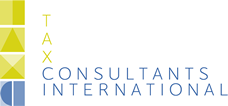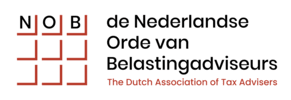Corporate Tax Services VAT advice & compliance Company Formation Services Accounting & Corporate Secretarial Services Payroll & HR services Global Mobility Services Corporate compliance Transfer Pricing Services Corporate Structuring Transfer Pricing International Tax Planning Mergers & Acquisitions International labor and cross border assignments Payroll & HR International accounting VAT Tax compliance
The Netherlands has a competitive corporate tax regime that stimulates entrepreneurship and foreign investment in the Netherlands. For foreign multinationals trading globally, the Dutch tax system allows an easy entrance into the European Union.
The statutory Dutch tax rates for corporations are aligned with the average European standard. The Dutch corporate tax regime, however, is generally perceived as one of the most competitive in the European market.
The Dutch authorities have an open mind for foreign investment and have broad experience facilitating foreign investments in the Netherlands.
The Rotterdam Tax Office contains a special department that functions as the first "checkpoint" for foreign investors. This department has, within the limits of the law, reached authorities to facilitate new (large) investments in the Netherlands.
Apart from that, the Dutch tax system offers the possibility to obtain certainty about the Dutch tax treatment of certain activities or corporate structures in advance. The Netherlands has an extensive written ruling policy, which regulates the possibility of obtaining Advance Tax Rulings (for holding activities, etc.) or Advance Pricing Agreements (for transfer pricing-related topics).
The Netherlands also has a far-reaching tax treaty network (it concluded bilateral tax treaties with more than 90 countries) that provides extensive benefits to Dutch tax residents. For more information about the Dutch tax treaties, please consult our online Dutch Tax Treaty Database.
The Dutch VAT system and a sophisticated bonded warehouse system facilitate the tax-free transition of goods through the Netherlands.
For qualifying expatriates, a specific facility can apply, which, in summary, allows the employer to pay 30% of the expatriates' salary tax-free (the so-called 30% regulation).
The main features of the Dutch tax system are:
- Extensive treaty network reducing withholding taxes on dividends, interest, and royalties, frequently even to nil percent (The Netherlands does not levy withholding tax on outbound interest and royalty payments unless it concerns payments to companies established in certain blacklisted low-tax countries)
- Unilateral double taxation relief in case of absence of a tax treaty;
- The absence of a withholding tax on outbound interest and royalty payments to companies in non-blacklisted countries;
- EU membership, as a result of which EU Directives are incorporated in Dutch law (like the Parent-Subsidiary Directive and Royalty Interest Directive based on which no withholding taxes can be levied on dividend payments, interest payments, and royalty payments to qualifying entities within the EU);
- The Dutch ruling practice, as a result of which certainty in advance can be obtained on future transactions, investments, or corporate structures;
- The participation exemption regime, which provides an exemption of dividends received from and capital gains realized on the shares in qualifying Dutch or foreign subsidiaries, provides for one of the most competitive holding regimes in Europe;
- Fiscal unity regime, which provides for a tax consolidation of companies within a group by filing a consolidated tax return, with as the main feature that losses of one company can be set off against profits of another company;
- Transfer pricing guidelines, which are based on the arm’s length principle for intra-company pricing as contained in the OECD model tax treaty and the OECD Transfer Pricing guidelines;
- Loss compensation facilities, which can provide for a nine-year carry forward and a one-year carry back of tax losses;
- Creation of tax-free reserves;
- Fiscal incentives, available for specific activities and projects (i.e., tonnage regime for shipping companies, Innovation Box, Research and Development deduction, Energy and environmental grants, free depreciation and amortization);
- The innovation box results in an effective tax rate of 9% for income concerning a patent obtained respectful of self-developed intangible assets. The innovation box is also applicable to intangible assets for which no patent has been granted but which intangibles result from R&D activities for which a so-called WBSO declaration (for wage tax purposes) has been obtained. NB. Operational losses are - under certain circumstances - deductible at the standard corporate income tax rate.
- Expatriate incentive, the 30%-regulation, a ruling allowing an employer to provide a qualifying seconded employee with a tax-free allowance of 30% of total salary;
- Investment deductions, which provide for specific energy and environmentally-friendly investments for an extra tax deduction on top of normal depreciation;
- No capital tax levy on the contribution of capital to a company and any later expansion of the capital;
- Use of foreign functional currency, which allows companies to calculate their profits in a functional currency other than the EURO and thus avoid taxation of effectively unrealized profits.
If you are interested in our services, contact us via e-mail or call our office in Rotterdam at +31 (0)10 2010466 or our office in Amsterdam at +31 (0)20 5709440.


.png)








